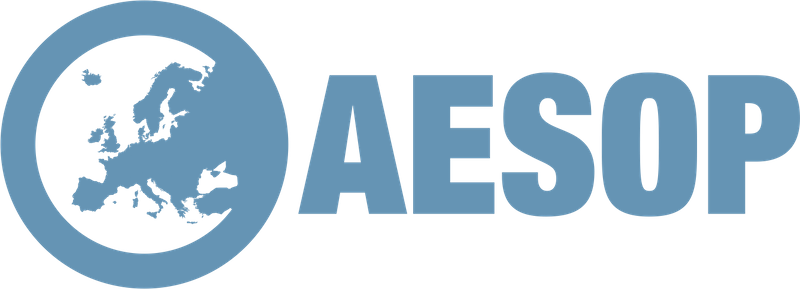Call for contributions – Special issue - Spotlight Finland: Contemporary challenges in planning practice and urban development
Spotlight Finland: Contemporary challenges in planning practice and urban development
Guest editors:
Eva Purkarthofer, Aalto University, eva.purkarthofer@aalto.fi
Raine Mäntysalo, Aalto University, raine.mantysalo@aalto.fi
Description: Motivated by the 6th World Planning Schools Congress taking place from 29.6. to 3.7.2026 in Espoo and Helsinki, this special issue seeks to provide insights into the reality of planning practice and urban development in Finland.
While peripheral in geographical terms, Finland has made international headlines as the world’s happiest country (Helliwell et al., 2025) and as home to Europe’s most sustainable city (Halko et al., 2024). Finland is frequently pictured as stronghold of the welfare state, democracy, equality and tolerance, as creative hub for modern design and architecture and as technology-driven innovation-led country. These properties are also reflected in the Finnish planning culture, which has been innovative as regards citizen participation (Kahila-Tani et al., 2019; Leino & Puumala, 2020), digital technologies (Nummi et al., 2023) and urban experimentation (Leino & Åkerman, 2022). At the same time, global trends such as neoliberalisation and hollowing-out of the public sector make it challenging to uphold democratic ideals and to equip planning with the political weight to effectively counteract the climate crises (see e.g. Ahlqvist & Moisio, 2014; Bäcklund et al., 2018; Mäntysalo & Saglie, 2010). Moreover, a stark contrast in wealth, opportunities and population development between Finland’s central and peripheral areas fuels political tensions and poses significant governance challenges (Gansauer et al., 2025; Mattila et al., 2023).
Contributions to this special issue are expected to highlight contemporary planning challenges in Finnish cities and regions relevant for international audiences, while acknowledging their unique historical, cultural, and institutional contexts. Potential contributions can discuss how issues such as local governance, citizen engagement, economic pressures, and environmental considerations intersect with urban development and planning. We encourage pieces that go beyond purely descriptive accounts to analyse underlying planning logics, institutional innovations, and the tensions between global trends and local particularities. Comparative perspectives within and beyond Finland are also especially welcome.
Types of contributions: We welcome diverse contribution formats including standard research articles, commentaries, reflective essays from planning practitioners, or collaborative pieces between academics and professionals that offer practitioner perspectives complementing academic research. Submissions that bridge theory and practice are particularly welcome.
Expression of interest: Interested authors should contact the editors with a brief abstract (200-300 words) outlining their proposed focus and analytical approach.
Publication schedule (indicative):
30th September 2025: Abstract submission deadline
7th October 2025: Decision on selection of abstracts
30th January 2026: Submission deadline for full papers
January-June 2026: Peer review and revisions
June 2026: Publication of Special Issue
June/July 2026: Special session/roundtable at World Planning Schools Congress
References:
Ahlqvist, T., & Moisio, S. (2014). Neoliberalisation in a Nordic State: From Cartel Polity towards a Corporate Polity in Finland. New Political Economy, 19(1), 21–55. https://doi.org/10.1080/13563467.2013.768608
Bäcklund, P., Häikiö, L., Leino, H., & Kanninen, V. (2018). Bypassing Publicity for Getting Things Done: Between Informal and Formal Planning Practices in Finland. Planning Practice & Research, 33(3), 309–325. https://doi.org/10.1080/02697459.2017.1378978
Gansauer, G., Lilius, J., & Adams, R.-M. (2025). Affective politics and neoliberal subjectivities in ‘left behind’ places: Counter-narrating regional decline within/from Finland’s ‘Capital of Pessimism.’ Environment and Planning C: Politics and Space, 23996544251317099. https://doi.org/10.1177/23996544251317099
Halko, A., Mäntysalo, R., & Purkarthofer, E. (2024). Engaging the United Nations’ Agenda 2030 in strategic governance of “Europe’s most sustainable city.” International Journal of Urban Sustainable Development, 16(1), 1–16. https://doi.org/10.1080/19463138.2023.2295324
Helliwell, J., Layard, R., Sachs, J., De Neve, J.-E., Aknin, L., & Wang, S. (2025). World Happiness Report 2025. University of Oxford: Wellbeing Research Centre. https://doi.org/10.18724/WHR-NKM9-5M31
Kahila-Tani, M., Kytta, M., & Geertman, S. (2019). Does mapping improve public participation? Exploring the pros and cons of using public participation GIS in urban planning practices. Landscape and Urban Planning, 186, 45–55. https://doi.org/10.1016/j.landurbplan.2019.02.019
Leino, H., & Åkerman, M. (2022). The politics of making Finland an experimenting nation. Critical Policy Studies, 16(4), 441–459. https://doi.org/10.1080/19460171.2021.1985549
Leino, H., & Puumala, E. (2020). What can co-creation do for the citizens? Applying co-creation for the promotion of participation in cities. Environment and Planning C: Politics and Space, 1–19. https://doi.org/10.1177/2399654420957337
Mäntysalo, R., & Saglie, I.-L. (2010). Private Influence Preceding Public Involvement: Strategies for Legitimizing Preliminary Partnership Arrangements in Urban Housing Planning in Norway and Finland. Planning Theory & Practice, 11(3), 317–338. https://doi.org/10.1080/14649357.2010.500123
Mattila, H., Purkarthofer, E., & Humer, A. (2023). Governing “places that don’t matter”: Agonistic spatial planning practices in Finnish peripheral regions. Territory, Politics, Governance, 11(4), 813–832. https://doi.org/10.1080/21622671.2020.1857824
Nummi, P., Staffans, A., & Helenius, O. (2023). Digitalizing planning culture: A change towards information model-based planning in Finland. Journal of Urban Management, 12(1), 44–56. https://doi.org/10.1016/j.jum.2022.12.001


